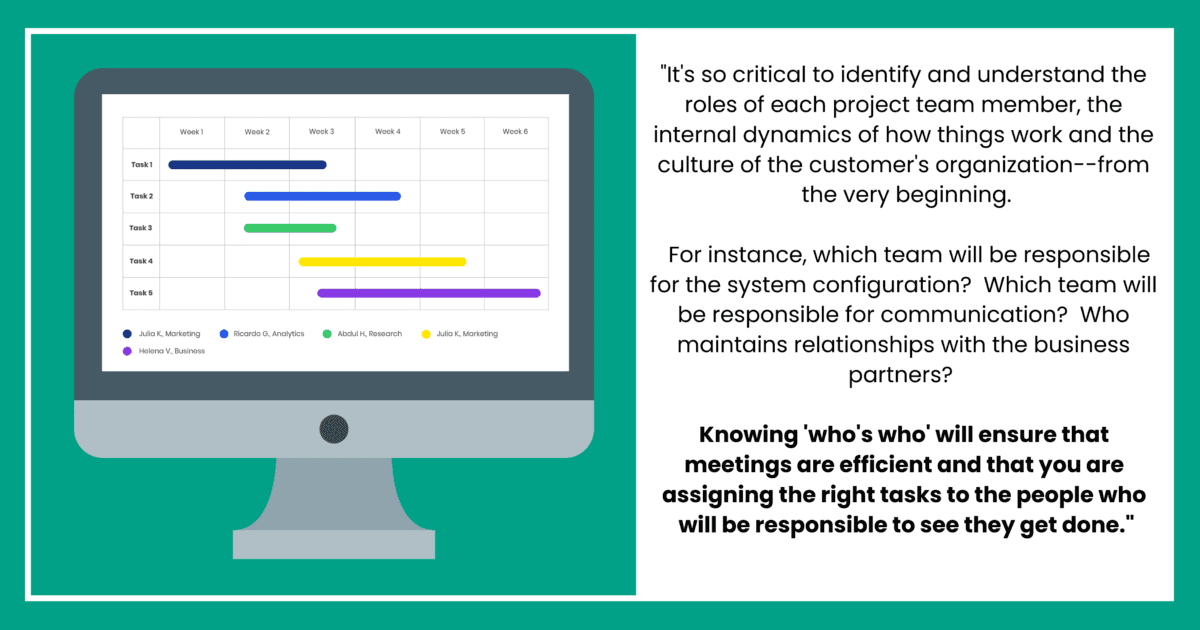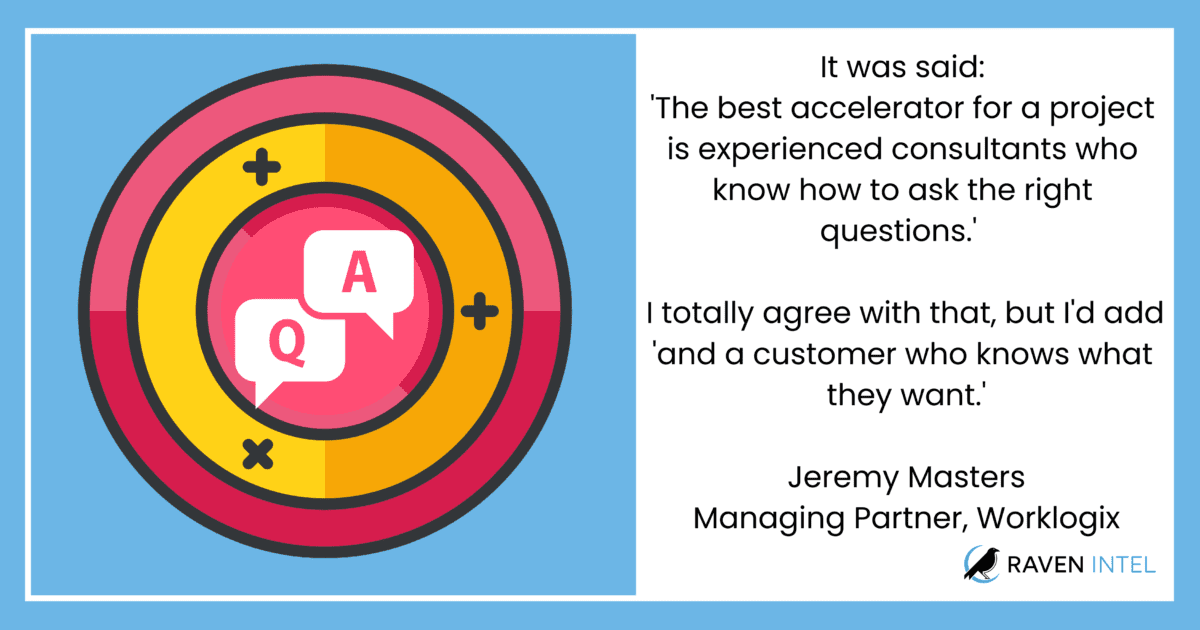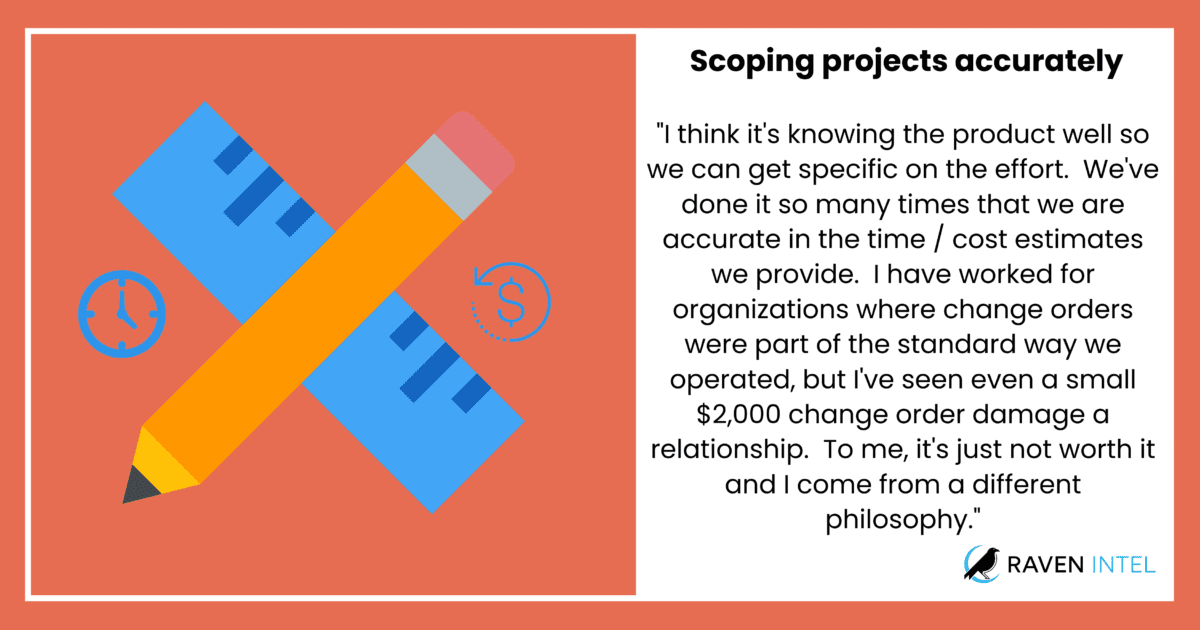Worklogix, an independent SAP SuccessFactors SI, has consistently outperformed both industry and SAP SuccessFactors partner averages with regard to customer satisfaction, on-time / on-budget delivery, project scoping quality & team consistency based upon customer reviews written on Raven Intel. I spoke with Jeremy to ask him what he feels is critical to customer success in SAP SuccessFactors project deployments.
On Partnership & Understanding Team Roles from the Beginning…
“It’s so critical to identify and understand the roles of each project team member, the internal dynamics of how things work and the culture of the customer’s organization–from the very beginning. For instance, which team will be responsible for the system configuration? Which team will be responsible for communication? Who maintains relationships with the business partners? Knowing ‘who’s who’ will ensure that meetings are efficient and that you are assigning the right tasks to the people who will be responsible to see they get done. In addition, with the changes that these digital transformations bring, there are inevitably times when a team member might be fearful and wonder, “will I lose my job?” You have to be careful to understand the culture and the makeup of how things get done as well as how the transfer of tasks will impact a team member personally.
What helps, too, is when you can meet with the a small core team / executive sponsor and understand the guiding principals about a particular function prior to any kickoff. Thinking about a recent implementation, we had ‘pre-meetings’ with a small executive group who managed the Compensation Center of Excellence ahead of time to understand their strategic principals / goals. Using that information as a baseline, it made the more technical / configuration meetings much more harmonious.”
On Consistency in Customer Branding & Communication…
“It’s so important that Human Resources keeps with the brand spirit of the organization–whether it’s through Compensation Statements, communications around process changes or any aspect of the system–it needs to be consistent. As a Consultant, you need to be hyper-aware of brand, colors and nothing can be ‘sloppy’. We just completed a Compensation Statement project for a customer where they had their own brand of the color red that we configured in the system. A good consultant will ensure that they make the system or anything that the employee will touch appear as an extension of the company brand.”
Greatest Accelerator in a Project: An Experienced Consultant Who Asks The Right Questions (and a Customer Who Knows What They Want)
“Last week, Brandon Toombs wrote on Twitter, ‘Overheard on a client discussion earlier today: “The best accelerator is experienced consultants who know how to ask the right questions.’ I totally agree with that, but I’d add ‘and a customer who knows what they want.’ I think about many of the projects that went really well and a common theme is the customer’s project lead had influence internally and the autonomy to make system changes without a lot of layers. I just went through one big implementation where the customer, who despite being incredibly complex because of all of their global entities / legal and regulatory issue, had a very detailed standard operating procedure. It was much easier to step in and ask the right questions then, because the customer could more quickly come up with answers and had a baseline of what was required. I’d also add that it gets infinitely easier when the customer also knows the product.”
On Project Scoping…
The reviews that we see at Raven Intel show that Worklogix has close to 100% scoping accuracy. What do you attribute this to?
“I think it’s knowing the product well so we can get specific on the effort. We’ve done it so many times that we are accurate in the time / cost estimates we provide. I have worked for organizations where change orders were part of the standard way we operated, but I’ve seen even a small $2,000 change order damage a relationship. To me, it’s just not worth it and I come from a different philosophy. At Worklogix, it’s not that we don’t want to get paid for what we’ve done, it’s just that we seek the greater good for our customers. There are times when there will be material changes that need to be made, most of the time the customer changes the scope and is well aware and accepting of them, but that is more of the exception than the norm that I see.”




